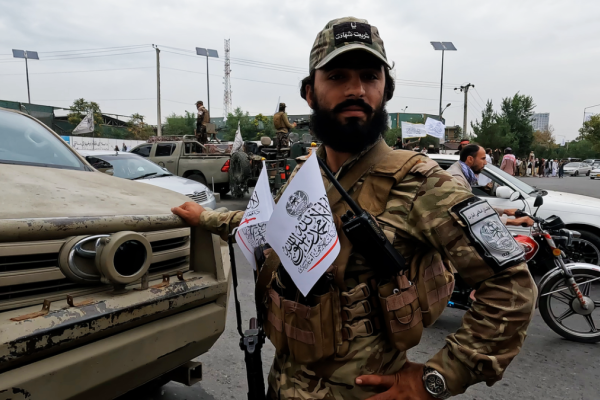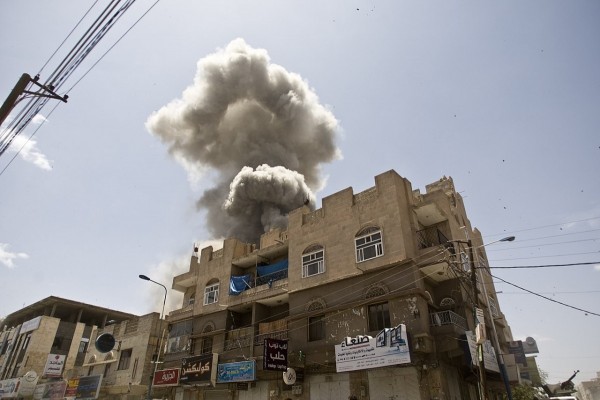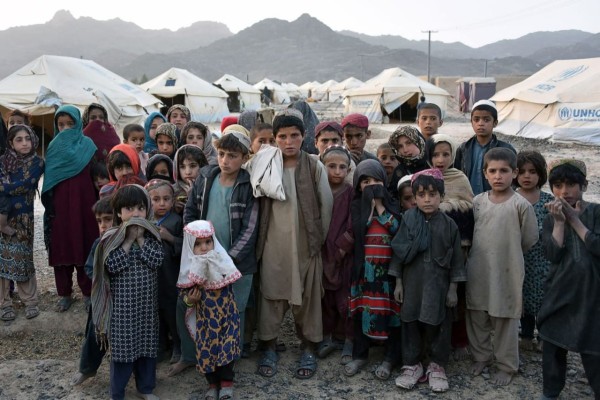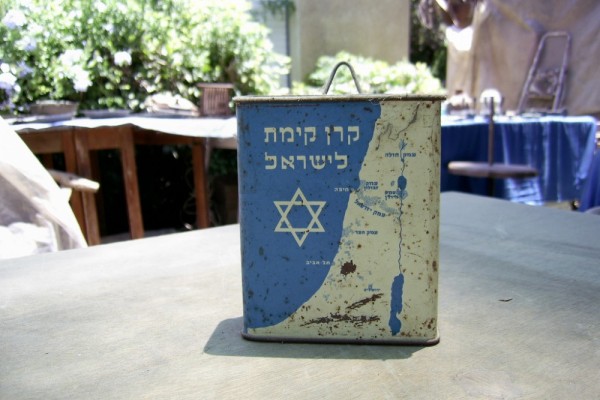Canada re-embraces Saudi monarchy by lifting freeze on arms exports
There is credible evidence Canadian weapons are being used by the Saudi-led coalition in Yemen

Canadian light armoured vehicles, developed by General Dynamics, move in a convoy in the Wainwright Garrison training area during Exercise Maple Resolve. Photo by Sgt. Jean-Francois Lauzé/Garrison Imaging Petawawa.
As many Canadians remain isolated in their homes due to the ongoing coronavirus pandemic, the Trudeau government quietly announced it was lifting its suspension of arms export permits to Saudi Arabia. It has also renegotiated the government’s $14 billion armoured vehicle deal with the belligerent and repressive monarchy.
The Liberals set the stage for this decision when a recent review found no evidence linking Canadian military exports to human rights violations committed by the Saudis. This assessment, completed by Global Affairs Canada, claimed there was no “credible” link between arms exports to the Saudis and human rights abuses. This came despite an April, 2016 memo to then foreign affairs minister Stéphane Dion that claimed the armoured vehicles would assist Riyadh in “countering instability in Yemen.”
Throughout their time in office the Liberals have largely paid lip service to the suffering of the Yemeni people. The five-year-long Saudi led war against Yemen, the poorest country in the Arab world, has left 100,000 dead. Today, more than 20 million people in Yemen need some kind of humanitarian assistance, and an estimated 18 million are food insecure.
Despite a great deal of public attention devoted to a diplomatic spat—after Riyadh withdrew its ambassador over an innocuous tweet from the Canadian Embassy in August, 2018—the Liberals have sought to mend relations and continue business as usual. In December, 2018 HMCS Regina assumed command of a 33-nation Combined Maritime Forces naval coalition patrolling parts of the Middle East from Saudi Arabia. Last September Foreign Minister Chrystia Freeland said, “Saudi Arabia is an important partner for Canada and we continue to work with Saudi Arabia on a number of different issues at a number of different levels.” For its part, the Canadian Embassy’s website continues to claim that “the Saudi government plays an important role in promoting regional peace and stability.”
According to an access to information request by PhD researcher Anthony Fenton, Freeland phoned new Saudi Foreign Minister Ibrahim Abdulaziz Al-Assaf in January, 2019. In briefing notes prepared to support the discussion, Freeland was encouraged to tell her counterpart that the Government of Canada “Appreciate[s] the hard work and heavy lifting by the Saudis and encourage[s] ongoing efforts in this regard.”
After Saudi Crown Prince Mohammad bin Salman ordered the killing and dismemberment of journalist Jamal Khashoggi in October of 2018, Trudeau treaded carefully regarding the murder. Ten days later, the Canadian Press reported that “the prime minister said only that Canada has ‘serious issues’ with reports the Washington Post columnist was killed by Saudi Arabian operatives inside Saudi Arabia’s consulate in Turkey.” Six weeks later the Liberals sanctioned 17 Saudi nationals over the issue, but none of them were in positions of significant authority.
Elsewhere, Freeland looked the other way when Saudi student Mohammed Zuraibi Alzoabi fled Canada last year—presumably with help from the embassy—to avoid sexual assault charges in Cape Breton. While Freeland told reporters that Global Affairs was investigating the matter, Halifax Chronicle Herald journalist Aaron Beswick’s access to information request suggested the federal government did not even bother to contact the Saudi embassy concerning the matter.
In April of last year, the Saudis beheaded 37 mostly minority Shiites. Ottawa waited 48 hours (after many other countries criticized the mass execution) to release a “muted” statement. What’s more, the Trudeau government stayed mum on the Saudi’s effort to derail pro-democracy demonstrations in Sudan and Algeria in 2018/19, and failed to release a critical statement condemning Riyadh’s support for Libyan warlord Khalifa Haftar’s bid to seize Tripoli by force.
While the Trudeau government implemented a freeze on new export permit approvals, shipments of Canadian weaponry continued. 2018 set a record for Canadian rifle and armoured vehicle sales to the Saudis. Over $17 million in rifles were exported to the kingdom that year, and a similar amount were transferred in 2019. Canada also exported $2 billion worth of “tanks and other armoured fighting vehicles” to the Saudis in 2019.
The Global Affairs review that claimed there was no “credible” link between Canadian weapons exports to the Saudis and human rights abuses noted there were 48 arms export permit applications awaiting government approval.
As Fenton has documented in detail, armoured vehicles made by Canadian company Streit Group in the UAE have repeatedly been videoed in Yemen. Equipment from three other Canadian armoured vehicle makers—Terradyne, IAG Guardian and General Dynamics—was found with Saudi-backed forces in Yemen. Fenton has shown many examples of the Saudi-led coalition using Canadian-made rifles as well.
The Trudeau government’s arming of the Saudi monarchy while saying little about its brutal war in Yemen should be understood for what it is: an example of callous war profiteering that is enabling massive human rights abuses in one of the most vulnerable places on earth.
Yves Engler has been dubbed “one of the most important voices on the Canadian Left today” (Briarpatch), “in the mould of I.F. Stone” (Globe and Mail), and “part of that rare but growing group of social critics unafraid to confront Canada’s self-satisfied myths” (Quill & Quire). He has published nine books.










